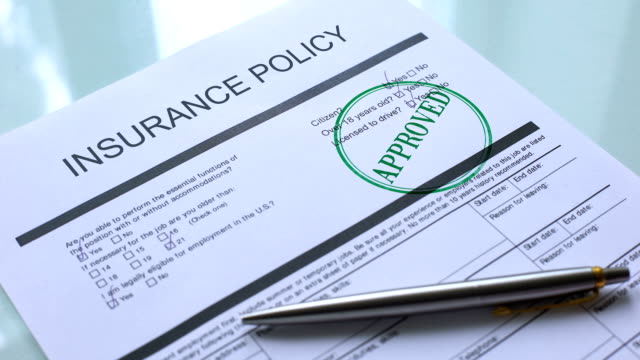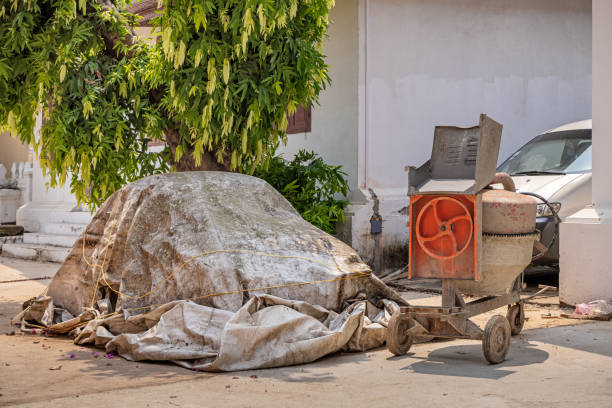10 Crucial Things You Must Know About Homeowners Insurance Before It’s Too Late!

Imagine waking up to find your home damaged by a fire, or discovering that a burglar has stolen your valuables. Without homeowners insurance, these scenarios could lead to financial ruin. Homeowners insurance is not just a recommendation; it’s a necessity for protecting one of the most significant investments you’ll ever make.
Recent statistics show that in 2020 alone, there were over 1.4 million fires reported in the United States, causing $21.9 billion in property damage. This underscores the critical importance of having adequate insurance coverage. In this blog post, we’ll explore ten crucial things you must know about homeowners insurance to safeguard your home and peace of mind.
Understanding Homeowners Insurance
Homeowners insurance is a type of property insurance that covers a private residence. It combines various personal insurance protections, including losses occurring to one’s home, its contents, and loss of use (additional living expenses), as well as liability insurance for accidents that may happen at the home or the hands of the homeowner within the policy territory.
Basic coverage provided by homeowners insurance includes:
- Dwelling Protection: Covers the structure of the home itself.
- Personal Property Coverage: Protects personal belongings inside the home.
- Liability Protection: Offers coverage if someone is injured on your property.
- Additional Living Expenses: Covers living expenses if the home is uninhabitable due to a covered event.
There are two main ways to determine the value of your home and belongings: actual cash value and replacement cost. Actual cash value pays to replace your home and belongings minus depreciation, while replacement cost pays to replace them at current market prices.
Why Homeowners Insurance is Essential
Homeowners insurance is essential because it protects against a wide range of risks and potential disasters. Examples include:
- Fire: One of the most common causes of severe home damage.
- Theft: Covers loss due to burglary.
- Natural Disasters: Provides coverage for events such as hurricanes, tornadoes, and earthquakes, although some may require additional policies.
- Vandalism: Protects against deliberate damage.
For instance, consider a family whose home was severely damaged by a fire. Their homeowners insurance covered the cost of rebuilding their home and replacing their possessions, saving them from financial devastation. Another example is a homeowner who faced a significant burglary; insurance compensated for the stolen items, allowing the family to recover quickly.
Types of Homeowners Insurance Policies
There are several types of homeowners insurance policies, each suited for different needs:
- HO-1: Basic form, limited coverage.
- HO-2: Broad form, more extensive coverage than HO-1.
- HO-3: Special form, the most common policy, covers all perils except those specifically excluded.
- HO-4: Renter’s insurance, covers personal property and liability for tenants.
- HO-5: Comprehensive form, covers more perils than HO-3 and offers higher coverage limits.
- HO-6: Condo insurance, covers personal property and the interior of the unit.
- HO-7: Mobile home insurance, similar to HO-3 but for mobile homes.
- HO-8: Older home insurance, covers homes that don’t meet current building codes.
For high-value homes or unique situations, there are special policies that provide additional coverage options to meet specific needs.
Factors Affecting Homeowners Insurance Premiums
Several factors influence homeowners insurance premiums, including:
- Location: Homes in areas prone to natural disasters or with high crime rates generally cost more to insure.
- Age and Condition: Older homes or those in poor condition may have higher premiums due to increased risk.
- Construction Type: Homes built with materials that are resistant to fire or storms may have lower premiums.
- Credit Score: Insurers often consider the homeowner’s credit score; a higher score can result in lower premiums.
To lower premiums, homeowners can:
- Improve Home Security: Installing alarms, smoke detectors, and deadbolt locks.
- Bundle Policies: Combining home and auto insurance with the same provider.
- Maintain Good Credit: Regularly checking and improving your credit score.
Common Exclusions and How to Cover Them
Homeowners insurance policies typically exclude certain risks:
- Flood Damage: Usually not covered; requires a separate flood insurance policy.
- Earthquake Damage: Also requires a separate policy.
- Mold Damage: Often excluded unless caused by a covered peril.
- Wear and Tear: Damage due to lack of maintenance is generally not covered.
To cover these exclusions, homeowners can purchase endorsements or separate policies. For instance, flood insurance is available through the National Flood Insurance Program (NFIP) and private insurers, while earthquake insurance can be added to your homeowners policy in seismic-prone areas.
How to Choose the Right Homeowner Insurance
Choosing the right homeowners insurance involves several steps:
- Assess Your Needs: Determine the amount of coverage you need based on the value of your home and belongings.
- Compare Quotes: Get quotes from multiple insurers to find the best rate.
- Check the Insurer’s Reputation: Research the insurer’s financial stability and customer service record.
- Understand Policy Details: Read the policy thoroughly to understand what is and isn’t covered.
- Work with an Agent: An experienced insurance agent can help you navigate the options and find the best coverage for your needs.
Filing a Claim
Filing a homeowners insurance claim involves several steps:
- Report the Loss: Contact your insurance company as soon as possible after the incident.
- Document the Damage: Take photos and make a list of damaged items.
- Meet with the Adjuster: The insurance company will send an adjuster to assess the damage.
- Keep Records: Maintain detailed records of all communications with the insurer and any expenses incurred due to the loss.
It’s essential to understand your policy’s claim process and keep meticulous records to ensure a smooth claims experience.
Frequently Asked Questions
Q: Is homeowners insurance required by law? A: While it’s not required by law, mortgage lenders typically require it.
Q: What does liability coverage include? A: Liability coverage protects against lawsuits for bodily injury or property damage that you or your family members cause to others.
Q: Can I change my coverage limits? A: Yes, you can adjust your coverage limits to better match your needs, but this may affect your premium.
Q: How often should I review my policy? A: It’s a good practice to review your policy annually or whenever you make significant changes to your home or personal possessions.
Conclusion:
Homeowners insurance is a crucial aspect of homeownership that provides protection and peace of mind. By understanding the types of coverage available, factors affecting premiums, common exclusions, and how to choose the right policy, you can make informed decisions to safeguard your home. Review your current policy regularly and consult with an insurance professional to ensure you have the appropriate coverage for your needs.






